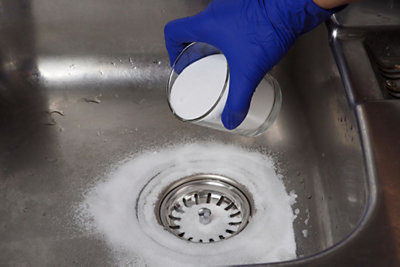Keep It Flowin': Your Guide to Cleaning Plumbing Pipes at Home
If you're like the average homeowner, you don't give much thought to your plumbing. At least not until things get backed up. Then, you scramble to figure out what to do and who to call.
Harmony in your plumbing system starts with clean drains. Today, our mission is to help you keep things flowing smoothly by exploring how to clean plumbing pipes at home. And it isn't just for the DIY enthusiasts in the room, but for anyone interested in pampering their pipes.
Your Home Will Tell You When to Clean Your Drains
Let's play detective for a moment. Your home is giving you clues, whispering secrets about its well-being, especially when it comes to your plumbing. Understanding these signals can be the difference between a quick fix and a call to the plumber.
So, what are these subtle, yet revealing signs that it's time to clean the drains?
One or more slow drains
Odd gurgling sounds from the drain
Water backing up in the shower or sinks
There's one more sign - fruit flies. These tiny telltales are often attracted to the gunk in your drains.
While most don't constitute a plumbing emergency, addressing these issues quickly will help you maintain a clean and healthy septic system.
Plumbing Safety 101: Gear Up Before You Dive In
Before you roll up your sleeves, invest a minute in safety. Cleaning your plumbing isn't a high-risk activity, but you still need to be careful. Here's a quick safety checklist:
Gloves
Goggles
Ventilation
Cleaning drains often includes using harsh chemicals. Always protect your eyes and hands by covering up with waterproof gloves and safety goggles.
Chemical drain cleaners pack a punch, and not just on clogs. Make sure you're working in a well-ventilated area to avoid inhaling fumes.
Finally, knowledge is power. Always read the instructions on any chemical drain cleaner. It's the roadmap to safe and effective use.
DIY Cleaning Solutions: Easy and Effective
Tackling drain cleaning at home can be surprisingly simple and effective with the right approach. Here are some tried-and-true DIY methods that utilize everyday items to keep your drains clear and fresh:
Baking Soda and Vinegar
Begin by pouring boiling water down the drain. Then, add half a cup of baking soda and let it sit for a few minutes. Follow up with a mixture of one cup vinegar and one cup hot water.
Cover the drain to trap the fizz, and after 10 minutes, flush with more boiling water. This even works well to keep the garbage disposal from clogging or smelling.
Wire Brush Technique
Sometimes drains get clogged up with gunk and debris that need a tougher approach. Use a long wire brush to scrub inside the drain, then fill the kitchen sink with hot water and rinse it down the drain.
Using Commercial Cleaners: A Balanced Approach
When DIY solutions don't cut it, commercial drain cleaners can offer a more potent solution. Let's consider their pros and cons:
Pros:
Chemical cleaners can power through tough clogs quickly.
Easy to use, they offer a quick fix for busy homeowners.
Cons:
Overuse can corrode plumbing, especially in older systems.
Harsh chemicals can be harmful if inhaled and are not eco-friendly.
May not address the root cause of clogs, leading to recurring issues.
It's wise to use these cleaners sparingly and always follow safety instructions. For stubborn clogs, you may need to try a mechanical method.
How to Clean Plumbing Pipes at Home with Tools
When facing stubborn blockages, mechanical tools take the spotlight. Here's your guide to conquering clogs with snakes and augers.
To use a plumbing snake or auger for localized clog:
Insert the snake into the drain, rotating it to maneuver through the pipe.
When you feel resistance, rotate and maneuver the snake to break through.
Slowly retract the snake, bringing the dislodged debris with it.
When dealing with more extensive issues like scale build-up, a handheld power auger with wire brushes becomes your ally. Here's the process:
Feed the auger into the drain until you encounter resistance.
The power feature allows the wire brushes to scrub away tough deposits.
Gradually withdraw the auger, leaving your pipes descaled.
Remember, these mechanical marvels require a gentle touch - patience pays off in the battle against tenacious clogs.
Preventative Maintenance Prevents Clogged Drains
The best kind of problem is the one you never have! Follow these tips to keep drains free and clear:
Install drain screens in your sinks and showers to catch hair, food particles, and other debris.
Be conscious of what goes down the drain. Avoid FOG, coffee grounds, and non-biodegradable items.
Periodically flush your pipes with hot water to prevent buildup.
These simple habits can significantly reduce the risk of clogs, ensuring your plumbing works smoothly.
Knowing When to Call a Professional
Recognizing when to seek professional help is key in plumbing maintenance. Persistent or recurring clogs should have the attention of a plumber. The problem may be deeper in the system than your DIY tools can reach. Homes with older pipes might need a professional's touch. DIY methods can sometimes cause more harm than good and damage pipes. Of course, any time you're unsure about the cause of a problem or how to fix it, a plumber's expertise can save time and prevent further damage.
Call Parker & Sons to Schedule Drain Cleaning
Knowing how to clean plumbing pipes at home can save you time and money, but some drain problems require professional drain cleaning. Even with regular maintenance, you may need help with a stubborn clog, and that's where we come in.
Help is just a call or click away. With over 50 years of service in the Phoenix area, Parker & Sons is the company you'll want to help with all your plumbing concerns, including drains and water heaters. Reach out now and schedule your service. We’re available 24/7, including weekends and holidays.
Related Reading
Subscribe to our e-Newsletter
Stay up-to-date on current news, promotions, and industry tips.

